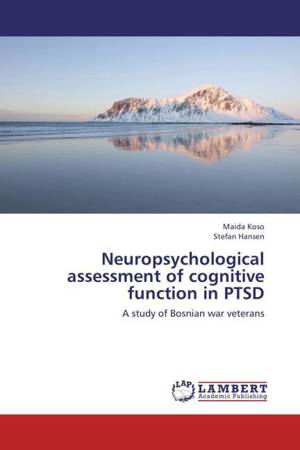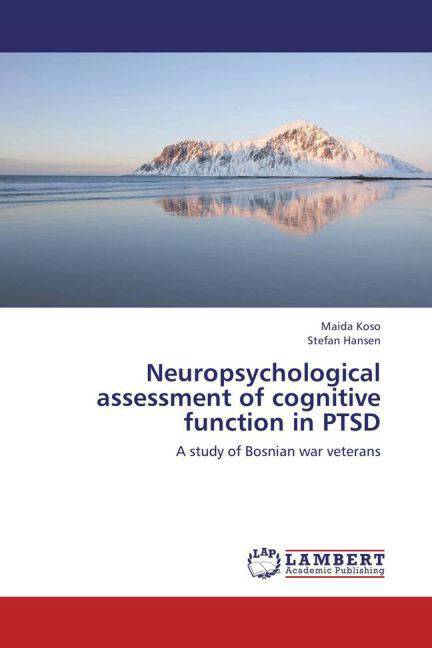
- Afhalen na 1 uur in een winkel met voorraad
- Gratis thuislevering in België vanaf € 30
- Ruim aanbod met 7 miljoen producten
- Afhalen na 1 uur in een winkel met voorraad
- Gratis thuislevering in België vanaf € 30
- Ruim aanbod met 7 miljoen producten
Zoeken
Neuropsychological assessment of cognitive function in PTSD
A study of Bosnian war veterans
Maida Koso, Stefan Hansen
Paperback | Engels
€ 46,95
+ 93 punten
Omschrijving
The present work assessed cognitive functions, such as attention, memory, and cognitive flexibility in 20 Bosnian men with combat-related PTSD, acquired during the Balkan war 1992-1996. Veterans with chronic PTSD were tested 7 years after the end of the hostilities with a battery of tests and questionnaires. Performance was compared with age- and IQ matched veterans with no PTSD. Study I disclosed pervasive impairments with large effect sizes pertaining to attention, working memory, executive function and memory. Study II documented that PTSD symptom severity is systematically related to neurocognitive deficits and to subjective everyday cognitive problems. Good verbal intellectual ability buffered against the detrimental effect of PTSD on executive cognition. We speculate that, in the present group of combat veterans, PTSD is associated with a dysfunctional higher-level supervisory attentional resource which in turn adversely affect the activity of other lower-level systems concerned with memory and thought.
Specificaties
Betrokkenen
- Auteur(s):
- Uitgeverij:
Inhoud
- Aantal bladzijden:
- 52
- Taal:
- Engels
Eigenschappen
- Productcode (EAN):
- 9783659428654
- Verschijningsdatum:
- 12/07/2013
- Uitvoering:
- Paperback
- Afmetingen:
- 150 mm x 220 mm
- Gewicht:
- 91 g

Alleen bij Standaard Boekhandel
+ 93 punten op je klantenkaart van Standaard Boekhandel
Beoordelingen
We publiceren alleen reviews die voldoen aan de voorwaarden voor reviews. Bekijk onze voorwaarden voor reviews.








